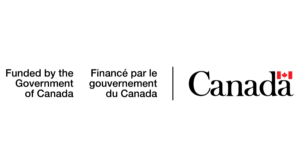The Way Forward project was active from 2012 to 2015.

As the population ages, the prevalence of chronic and life-limiting illnesses will increase. In response, Canada must work towards a system of community-integrated palliative care. When someone is diagnosed with chronic, life-limiting illness, involving palliative care providers early can improve quality of life and reduce suffering. This means that high quality hospice palliative and end-of-life care must be an integral part of health care, and available in all settings of care, including hospital, long-term/continuing care, residential hospices, shelters and individual homes. It also means that the palliative approach to care must be part of the treatment repertoire of any health care professional, supported by consultation or referral to a specialist palliative care team when necessary.
The need for end-of-life care is not simply a health issue. It is a complex social and economic issue that will affect individuals, families, communities and the workplace. Hospice palliative care programs allow patients to gain more control over their lives, manage pain and symptoms more effectively, and provide support to family and informal caregivers. Yet, our system is still very much based on a cure model with the solitary goal of cure; questions of quality of life and end-of-life care are often secondary.
Improving access to hospice palliative care through community integration is a goal that has been identified by leaders across Canada – the Palliative Care Coalition of Canada (PCCC) (formerly the QELCCC), the Pallium Foundation, the Canadian Hospice Palliative Care Association (CHPCA) and The Honorable Sharon Carstairs, along with a number of Senate Committees.
Resources
The National Framework
This document is at the core of The Way Forward initiative. The National Framework guides healthcare professionals, health systems leaders, program planners and others as they adopt an integrated palliative approach to care. It contains principles and action steps, best practices and other resources to help communities and organizations adopt a palliative approach to care across all settings of care.
Discussion Papers
Moving towards an integrated palliative approach to care requires a community effort supported by information on the current hospice palliative care landscape in Canada. A number of discussion papers were developed for this initiative, and reviewed by experts from across Canada. These documents include a thorough description of the palliative approach to care; a review of economic papers; considerations for caregivers; and best practices from models being implemented in Canada and internationally. Each is provided for your information and reflection.
Since 1995, there have been nine major national consultations with Canadians dealing in whole or in part with hospice palliative and end-of-life care. The nine final reports from these studies contain a total of 85 recommendations for improving care for the dying and their families. The 85 recommendations can be grouped into five broad policy categories: access to care; supports for family caregivers; quality of care; advance care planning and public awareness; and federal responsibility. This discussion paper summarizes the 85 recommendations from the nine national reports, examines the continued relevance of these recommendations and identifies recommendations that are still important to implement as potential priority areas for The Way Forward initiative.
Although only a small proportion of people will need intensive or tertiary palliative care provided by specialized palliative care teams, everyone faced with a life-limiting or life threatening illness could benefit from other aspects of palliative care. Being diagnosed as “close to death” can no longer be the trigger for initiating palliative care because too many people with life threatening illnesses who die “unexpectedly” will not receive the care that could enhance both their living and dying. Instead, a palliative approach could and should be integrated into care for people with chronic, life-limiting conditions and people who are frail and vulnerable to infections or falls that could hasten death. This integrated palliative care should be provided by primary care, chronic care and long-term care practitioners and available early in the course of a disease (i.e. soon after diagnosis) and throughout the person’s illness trajectory.This discussion paper presents the case for using an integrated palliative care approach, defines both palliative care and the palliative care approach and identifies the benefits to the approach.
A more integrated approach to palliative care in the community shifts hospice palliative care from being a specialized service available to the few to a more general integrated service available to people with life-limiting conditions in all settings where they live and receive care. The innovative models explored in this discussion document may vary by care setting (e.g., primary care, long-term care homes) and geographical focus (e.g., urban, rural, etc.), yet all share common elements that make them successful and transferable to the Canadian context
“Family caregivers” provide care and assistance for spouses, children, parents, extended family members and friends who are in need of support because of age, disabling medical conditions, chronic injury, long term illness or disability. The number of caregivers (including those caring for someone at end-of-life) in Canada today is estimated at five million (Canadian Caregiver Coalition, 2012). With the aging population, this number is expected to increase. More than three-quarters of family caregivers are employed and most work full time. In 2007, about 520,000 employed caregivers missed at least one day of work per month to provide care, and 313,000 reduced their work hours (Fast et al., 2011). Family caregivers typically have household incomes below the national average—only 35 percent of households with caregivers report income over $45,000 (Fast, 2008). Women most often fulfill family caregiver responsibilities; however, the number of male family caregivers is increasing (Fast, 2008). Historically, palliative care has been regarded as a service at the end of life when individuals did not receive any treatment. Today, palliative care integrated earlier in the disease/end-of-life trajectory is acknowledged as necessary and the desired standard of care.
In the current environment of rising health care costs and concerns about the sustainability of publicly funded health care, policy makers are paying more attention to the costs associated with the last year of life.
The cost of dying in Canada ranges from as low as $10,000 for a sudden death to between $30,000 and $40,000 for someone with a terminal disease such as cancer or chronic obstructive pulmonary disease. The cost of dying varies not only by cause but by where people die: on average it costs $36,000 to die in a chronic care facility, compared to $16,000 to die at home. Controlling or reducing the cost of dying could benefit the health care system, families and individuals. It could relieve pressure on health care resources and make it possible to re-allocate savings to other care.This discussion paper presents the economic case for hospice palliative care.
Because of its focus on the whole person, more experts are advocating that a palliative approach to care could and should be integrated into care for all people with chronic, life-limiting conditions (including cancer) {Smith et al., 2012} and be available much earlier in the course of a disease to address their needs. While a growing number of people inside and outside the health care system see the benefits of expanding access to a palliative approach to all people with chronic, life-threatening illnesses, the key challenge remains “how”? How will this model change practice? Who will be responsible for providing this care? What knowledge, skills, and resources will they need? This discussion paper examines three possible models for delivering integrated chronic and palliative care.
Quality Improvement Environmental Scan
As part of The Way Forward initiative, this report provides the results of international and national environmental scans. It documents quality frameworks, standards, measures, indicators and instruments being used internationally to support the delivery of palliative care in the community. The international literature review is followed by a national environmental scan of how palliative care is delivered in Canada and the information that exists at the local, provincial/territorial and national level in order to identify tools, indicators and the supporting data currently being used for palliative care.
Public Opinion Survey Report
Harris/Decima conducted for The Way Forward, a quantitative online research survey of 2,976 Canadian adults. Completed using Harris/Decima’s proprietary online panel so is precluded from reporting a margin of error. Data were collected between July 5 and August 7 2013. Survey data were weighted using 2011 Census to reflect general population (gender, age and region).
Healthcare Professional Research
Under the direction of the Quality End-of-Life Care Coalition (QELCCC) and the Canadian Hospice Palliative Care Association (CHPCA), The Way Forward commissioned Ipsos Reid to conduct a research program with the main objective of exploring and defining how family/general physicians, nurses and other health professionals currently handle approaching palliative care with their patients. The initial qualitative research included focus groups in three urban centres (Calgary, Toronto, Montreal and ideation sessions in rural regions (rural east, rural north, and rural west).
The first quantitative phase research involved a survey among general practitioners/family physicians in Canada, as well as nurses/nurse practitioners in Canada working in primary care.
A second quantitative phase involved conducting a survey among oncologists in Ontario and Quebec, and nurses working in oncology in Ontario and Quebec who belong to the Canadian Association of Nurses in Oncology (CANO).
The Way Forward, under the direction of CHPCA/QELCCC commissioned Ipsos Reid to conduct a research program with the main objective of exploring and defining how family/general physicians, nurses and other health professionals currently handle approaching palliative care with their patients
Full Report
Key Messages
Attitudes Towards Palliative and End-of-Life Care Infographic
Survey Infographic
- currently handle approaching palliative care with their patients
- currently assess/manage patients who may be considered palliative; and,
- identify potential barriers to discussing palliative care earlier in the illness trajectory.
Following a survey of GP/FPs and nurses working in primary care settings across Canada, a similar survey was conducted among Ontario and Quebec Oncologists, and nurses working in oncology in Ontario and Quebec who belong to the Canadian Association of Nurses in Oncology (CANO). These surveys were done in partnership with Cancer Care Ontario
Family Caregivers
In partnership with The Way Forward: An Integrated Palliative Approach to Care, the Canadian Home Care Association (CHCA) reached out to caregivers of individuals with life-limiting illnesses. Specifically, the CHCA wanted to consult with caregivers across the country to uncover what caregiver supports would be needed to implement an integrated palliative approach to care. The CHCA also sought caregiver feedback on the effectiveness of current supports. The widespread dissemination and uptake of The Way Forward can only be accomplished by recognizing and understanding caregiver needs. If the goal is to continue to provide quality integrated palliative care in the places where patients choose to live, for as long as possible and with as much quality as possible, then the needs of their family caregivers must be addressed.
As the number of older Canadian rises, so will the number of individuals who rely of family caregivers to support them when they choose to die at home. Recognizing the urgent need for immediate actions, the Canadian Home Care Association – in partnership with The Way Forward – felt it was critical to gain a better understanding of the impact of family caregiving on Canadians’ work and life balance. Specifically, the focus concentrated on the home care sector, as family caregivers are a critical part of all home care services and are often the difference between an individual dying at home or in hospital. For home care service providers, challenge of helping employees to achieve balance between their family caregiving responsibilities and work will only increase over time. To identify strategies and approaches that support working caregivers, the CHCA recognized the need to consult caregiver‐friendly organizations and understand their journey in providing a supportive workplace environment for their own employees.
Lexicon
Like all health care practices, hospice palliative care has its own language and terminology. This lexicon of terms is designed to help those interested in implementing the integrated palliative approach to care develop a common language and understanding.

